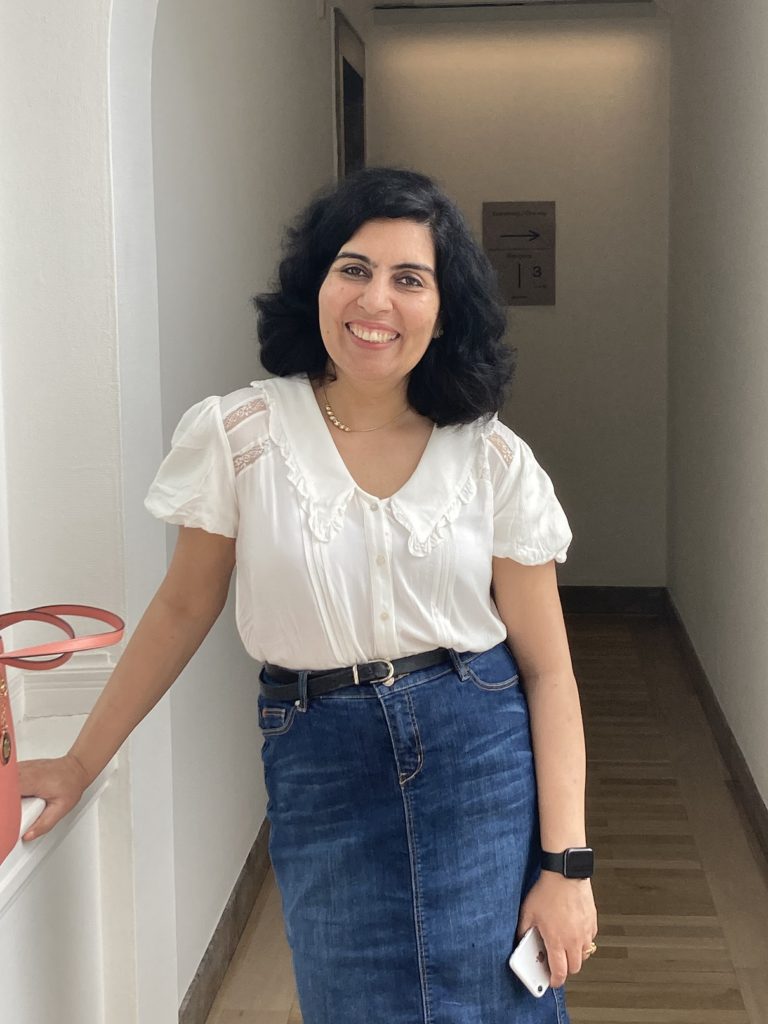There was something about that day….
She was more than ever scared of losing herself when she came for a therapy session. She wasn’t sure if she would be able to cope with the growing needs of her son. Pandemic had escalated her loneliness and fear. And it had brought a lot more focus towards providing care to caregivers. It was an area of discussion and concern for people who care for patients suffering from cancer, covid or any long-term illness. Parents of special needs children is another group who need constant support in managing their emotional wellness.
While in therapy, she spoke about the pain she felt after knowing the undiagnosed mental condition of her 10-year-old son that will stay with him throughout his life. She was numb, confused, guilty, angry, and frustrated, all at the same time. Even though she is one of the most caring mothers I know, she couldn’t stop blaming herself.
“How couldn’t I see all of this? I am a bad mother,” said she.
Her son is an active child and quite a smart one who falls under the category of an introverted boy, whom she thought needed help in building his self-confidence. He does great in his studies and scores more than average. He isn’t actively into sports but has a safe group of friends with whom he liked spending time. Books are his world, and he enjoys dug under them.
“Recently, he started struggling with scheduling his tasks. With increasing complexities in mathematical concepts, he found it hard to stay focused,” she said. Then continued, “Procrastination was his biggest problem to overcome. He was forgetting simple concepts in maths but managed complex arithmetic easily. He had to put in too much effort to stay motivated to do his regular tasks like school homework, making his bed, picking up things from the floor or keeping his room organised.”
According to her, he was going through pre-teenage issues because everything looked like part of the growth stages. As parents, they were unaware that he was struggling more than the kids of his age.
“One day while studying maths, he confessed his strive with the subject. He was forgetting simple formulas and making careless mistakes,” she continued.
“Practice more,” said my husband, “that’s the only way to improve and build your muscles.”
But then, while performing his maths test, he panicked. His mind went blank, and he couldn’t complete his test.
“It happens to everyone,” I told him, “We all panic under pressure and forget while stressed.”
She was trying to normalise things for him. But then panic attacks increased to the extent that he couldn’t sleep properly throughout the night.
“A point came when we decided to meet a therapist, who after two-three consultations advised for some tests. At that point, I felt anxious,” she added.
The child got diagnosed with ADD (now called Inattentive type of ADHD), a condition that gets easily ignored by teachers, parents, and friends because the child performs better academically. Procrastination, forgetfulness, trouble focusing and following a discipline are the issues that get easily mixed up with growing teenage problems. Similar symptoms but with increased severity go under the umbrella of inattentive type of ADHD. Because such children are not hyperactive, their symptoms blend with some common behavioural problems and go undiagnosed easily. It only comes under observation when the child finds difficult to cope up with growing need.
“My son was suggested psychotherapy and medication for a while,” she informed.
As his mother, she couldn’t stop holding herself responsible for not knowing about his condition.
We all know every mother now and then suffers from self-doubt. But such conditions force us to question our abilities further.

She was now struggling to understand how to deal with this new revelation. She was not sure what to say or how to respond to her son and was constantly questioning her instincts.
We all know every mother now and then suffers from self-doubt. But such conditions force us to question our abilities further.
Struggle with self-doubt, and the need to find a grounding in an unfamiliar area to support her son developed fear in her. The fright of making mistake in this newly diagnosed condition was pushing her anxiety into depression. Her irrational thinking stemming from her fear was controlling her responses and emotions. “What if I will not give appropriate help to my child? What if I will not understand what he needs? What if I will hurt him further?”
It reached to level when her husband gently advised her to get help for herself at the physical and emotional level. He could see her struggle every time dealing with their son as her response was out of guilt and not compassion.
It’s tough to care for someone wholeheartedly if you grapple with your emotional and mental health. Caregivers in any capacity – nurse, doctor, therapist, mother, father, sibling; need a double amount of support to help people who need them.
It takes immense effort and patience to protect yourself from feeling weak after seeing the suffering of people you care about. But it brings an equal amount of relief and strength when you are ready to support them in your best capacity without holding yourself responsible.
A caregiver needs an empathetic hearing ear and some me-time. In absence of that, it gets difficult to stay active, happy, and calm. It helps to do things for soul nourishment. This helps to replenish the lost strength, to be within positive energy and to smile in adversity.
Many people ask me, how do I keep myself balanced while listening to so many emotional problems from my clients? Honestly, there is no single strategy or practice. Meditation, writing, gardening, meeting friends for dinner, enjoying morning me-time, or going silent in my room to read; whatever I do largely depends on what my heart says at that moment. The two things I have learnt by being a caregiver are a) self-care is important, b) while practising self-care do not push yourself in following a rigid plan. Make self-care a ritual, not a routine. If today I wish to write, I will, but tomorrow I like to read or listen to soothing music, I will follow that.
This mother realised that her son would benefit when she becomes a mindful listener. She used therapy to release her emotions. Her improving emotional and mental well-being allowed her to be available wholeheartedly for her son. She still sometimes thinks that everything could have been avoided, but she doesn’t blame herself anymore.
“For some time, I was resisting to accept my son’s condition. I was searching for things to prove to doctors that they made a mistake in the report. Through my sessions, I learnt to see what was in front of me and not anxiously search for what I desired to see,” she said. “This is the best way to help him,” she added.
That day, I saw the transformation of a mother.
[Featured Image Credits : Bonnie Kittle on Unsplash]

Vandana Sehgal is an Author, Holistic Wellness Coach, and Book Coach. Holistic Wellness signifies a healthy balance between psychological, professional, physical, social, financial and spiritual aspects. Striving to find inner-happiness and outer-peace without letting relationships compromise is the objective of Holistic Wellness. As a Holistic Wellness Coach, Vandana helps you to find balance, health and joy in life.
A lovely article